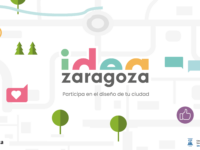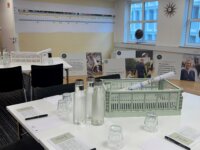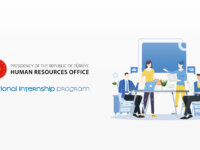Public services play a crucial role in shaping citizens’ experience of society. This handbook is aimed at professionals working in public services and focuses on concrete pratices to strengthen trust and democracy in everyday service encounters. It helps to make public services more effective by initiating and maintain trust, enhancing participation and agency, and through them delivering better learning, better safety, and better welfare.
Case Study Library
Where innovations are collected and shared to disseminate and replicate good ideas

Innovations:
0
This website, as well as any data and map included herein, are without prejudice to the status of or sovereignty over any territory, to the delimitation of international frontiers and boundaries and to the name of any territory, city or area.
Case Study
High Impact Service Provider Case Study: Innovating the Individual Assistance Program For Survivors…
The Federal Emergency Management Agency (FEMA), a component of the United States’ Federal Government, has fully reimagined its DisasterAssistance.gov website to make applying for disaster assistance faster than ever. This change will reduce time burdens for survivors post-disaster, when they are in greatest need and the most overwhelmed. This effort has been built on decades of feedback from disaster survivors and is expected to reduce the registration time by more than 15%.
The Government of Canada is experimenting writing existing laws and proposed regulations into code. Encoding rules allows us to run legal simulations in the regulatory drafting room, which helps us detect ambiguities, loopholes, and gaps in the rules that often go unnoticed. However, existing tools designed by and for programmers are not intuitive for rule-makers. In response, we set out to develop one – an open-source Rules as Code tool called Blawx.
In the U.S. government, community members have experimented with designing the government services they will use. Their lived experience improves service outcomes, builds better relations with the government, and creates greater ownership over the service. This is new; normal participatory design of government services just includes community members for certain activities at certain points, never throughout, and never allowing the community to lead and frame the project or choose methodologies.
Zaragoza City Council has launched a new electronic citizen participation platform with the aim of involving its citizens in public policy decisions and in the design of its services. It provides an interactive space for residents to actively contribute, strengthening the collaboration between the administration and the community, thus fostering a more inclusive and transparent management.
Baia Mare has developed a community-driven approach to decontaminate heavy metal-polluted land using plants, addressing a critical public health issue. The project combines phytoremediation, smart mapping technology, and a digital reward system to encourage environmental action and sustainable development. This innovative model empowers citizens, improves urban health, and creates new green economic opportunities.
This project aimed to translate new legislation on occupational injuries into a citizen-oriented service journey, helping those injured at work to re-enter the workforce through education. Through co-creation, we designed the future customer journey, designing a unified service that involved various stakeholders.
The National Internship Program, coordinated by the Presidency of the Republic of Türkiye Human Resources Office, is a nationwide program designed to assist youth employability and school-to-work transition. It involves all public institutions and voluntary employers with the aim of providing internship opportunities for university students with principles of equal opportunity and merit ensured by its platform. The Program helped and encouraged candidates to engage in activities for their…
The National Injury Insurance Agency Queensland in partnership with Queensland University of Technology is revolutionising support for those severely injured in accidents by offering a digital platform for easier access to services and self-management. This initiative provides a seamless, empowering user experience, enhancing independence and trust in public support systems. It's innovative because it transforms traditional, paper-based processes into an accessible, efficient digital solution.
A partnership of the University of Cape Town's Design Thinking School and the Western Cape Public Library Service sought to reconfigure the service delivery model of public libraries to draw in South Africa's young adult demographic. A pilot in Wellington (Cape Winelands) yielded three user-tested solutions to improve the library services model and effectively respond to the often neglected needs of young people not in employment, education, or training (NEETs).




